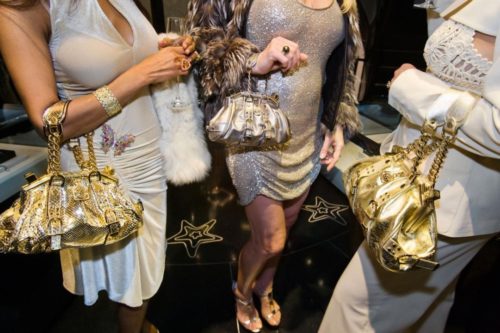Editor’s Note: I published this nearly 2 years ago, but it is still something I think of whenever discussing Politics and Economics, because it is resonant with the truth, that we are all in this together and that, when asked on a personal basis, 80% of Americans would like to see their neighbors prosper and thrive.
What is the higher calling of a museum? It’s a fair question. Most of us believe we have one, and museums, as organizations, consist of people…
In conjunction with the exhibition, Generation Wealth by Lauren Greenfield, at ICP, the museum presented the panel discussion, “The Inequity of Wealth in Contemporary America,” examining the statistics, the solutions, and the human cost of how money is distributed across the spectrum of American lives.
Some statistics were surprisingly hopeful, for instance, that a wide majority of Americans across all party lines are in favor of reducing economic inequality, and the growing effectiveness of the public outcry for higher minimum wages. Others – the fact that both Democratic and Republican members of Congress are FAR wealthier than most of the rest of us, that gender and race were large factors in disparity in prosperity, and the high level of concentration of wealth among a very small percentage of Americans — were no surprise but bracing to have confirmed and discussed.
A sobering note was the discussion of unprecedented wage stagnation, in the face of increasing costs of living over the past 15 years, contributing to increasing numbers of working Americans being pushed to the edge. A causative factor has been the change of the focus of business entities from employees to shareholders, regardless of the human cost. If reform does not come to be seen as desirable on strictly human terms, much damage will be done before the effects of this policy boomerang to the top of the economic “food chain.”
The panelists work on the front line of bringing greater public awareness to the current conditions. Moderator Leslie McCall is presidential professor of sociology and political science and associate director of the Stone Center on Socio-Economic Inequality at the CUNY Graduate Center. She studies public opinion about inequality, opportunity, and related economic and policy issues; trends in actual earnings and family income inequality; and patterns of intersectional inequality.
Shawn Escoffery, director of the Strong Local Economies program at the Surdna Foundation, works to support the development of robust and sustainable economies that include a wide range of businesses, equitable economic policy, and access to quality jobs. With an annual budget of $9.5M, the program aims to create opportunities for upward economic mobility among communities that have experienced historical barriers to opportunity, including low-income people, communities of color, women, and immigrants. Shawn presented the video, “My Unfairly Paid Lady,” featuring Jeff Perry of the TV hit “Scandal.” Humor and music combine to drive forward a very strong point about wage inequality, as you can see for yourself here.
The 3rd panelist, award-winning journalist and television host Natasha del Toro, appeals for the greater good by exposing the hardship and heartbreak most of us do not see. In her travels across the US with internationally renowned photographer Joakim Eskildsen, she documented the lives of people of all backgrounds impacted by cruel conditions. The deeply moving material is shared in a book and multimedia website on poverty in America called American Realities, and led to the documentary Hunger in the Valley of Plenty by KQED and the Center for Investigative Reporting.
The arts and museums have a crucial role to play* in picking up where the media leaves off. Presentations such as this one use creative focus and presentation to open hearts and minds to the most critical issues of the times in which we live. Where the news presents information about the major players on the political and economic stages, this conference provided insight into the lives of so many real Americans, who, with the rest of us, will have to be the ones to effect real change — through connection, communication, and action.
*Please note: A recent program at the Brooklyn Museum, The Brooklyn Conference, highlighted one of their stated core values, that “the Museum is a place where people can see themselves with dignity and each other with empathy, care, and respect. As a public, civic institution we believe it is our mandate to contribute to the advancement of society with a commitment to true connectedness and diversity.” Bravo!
